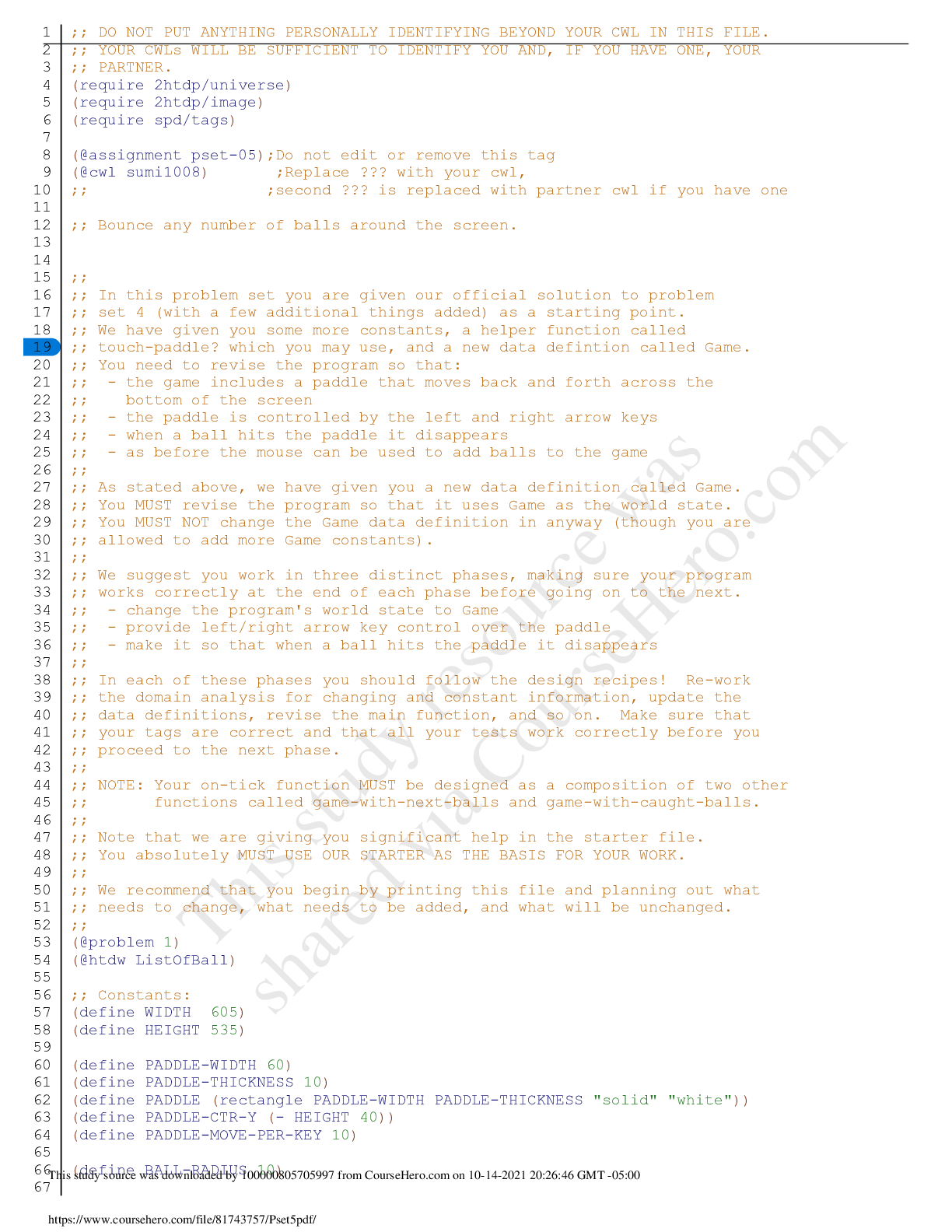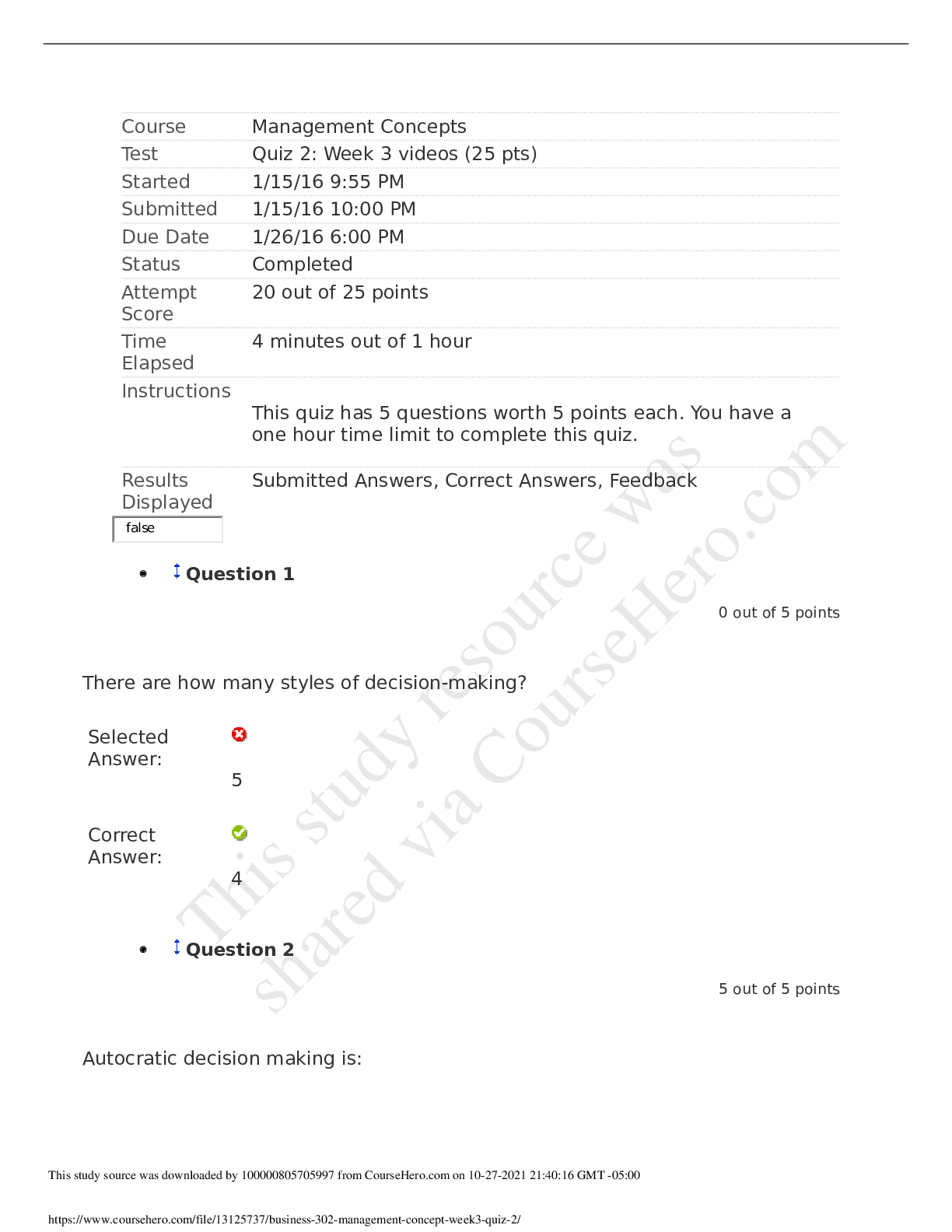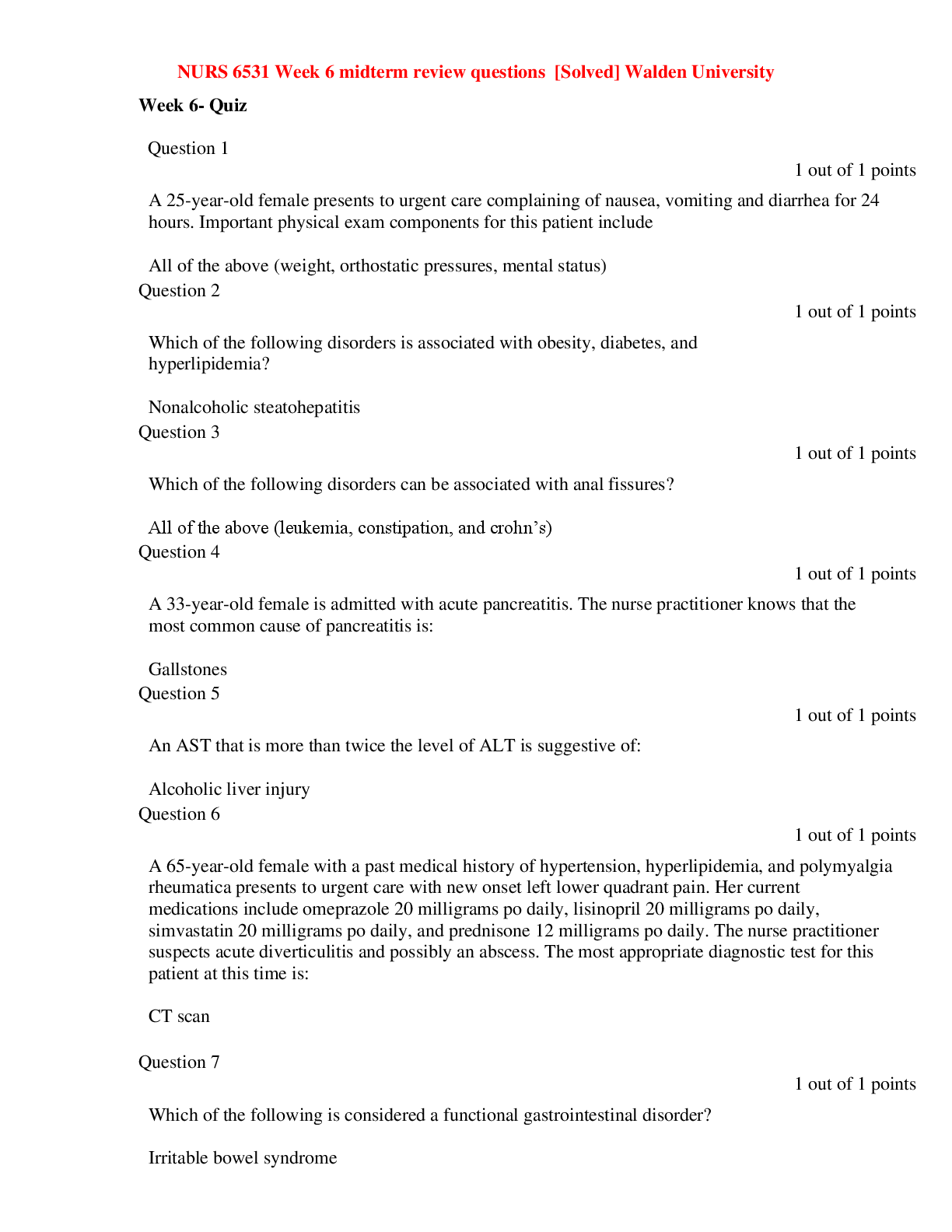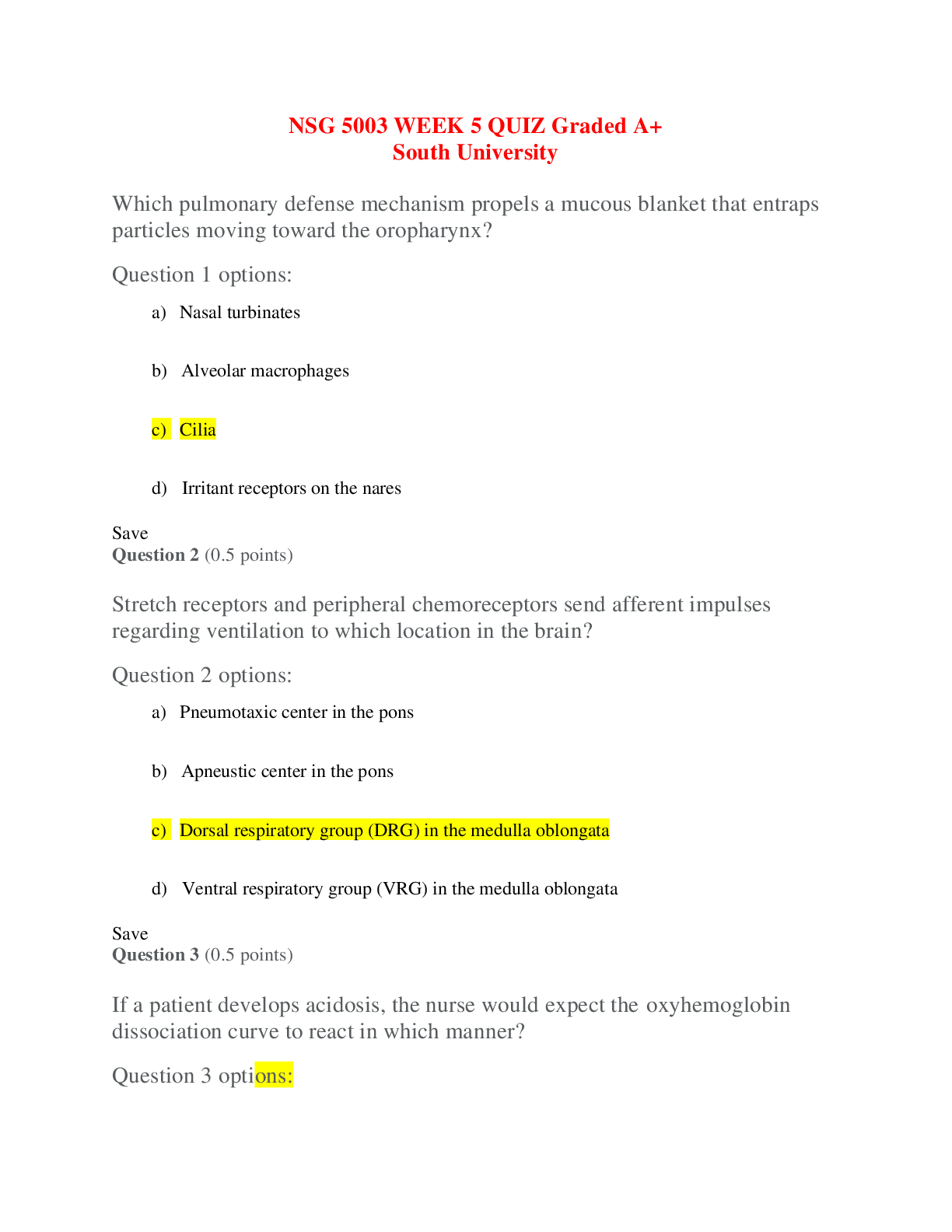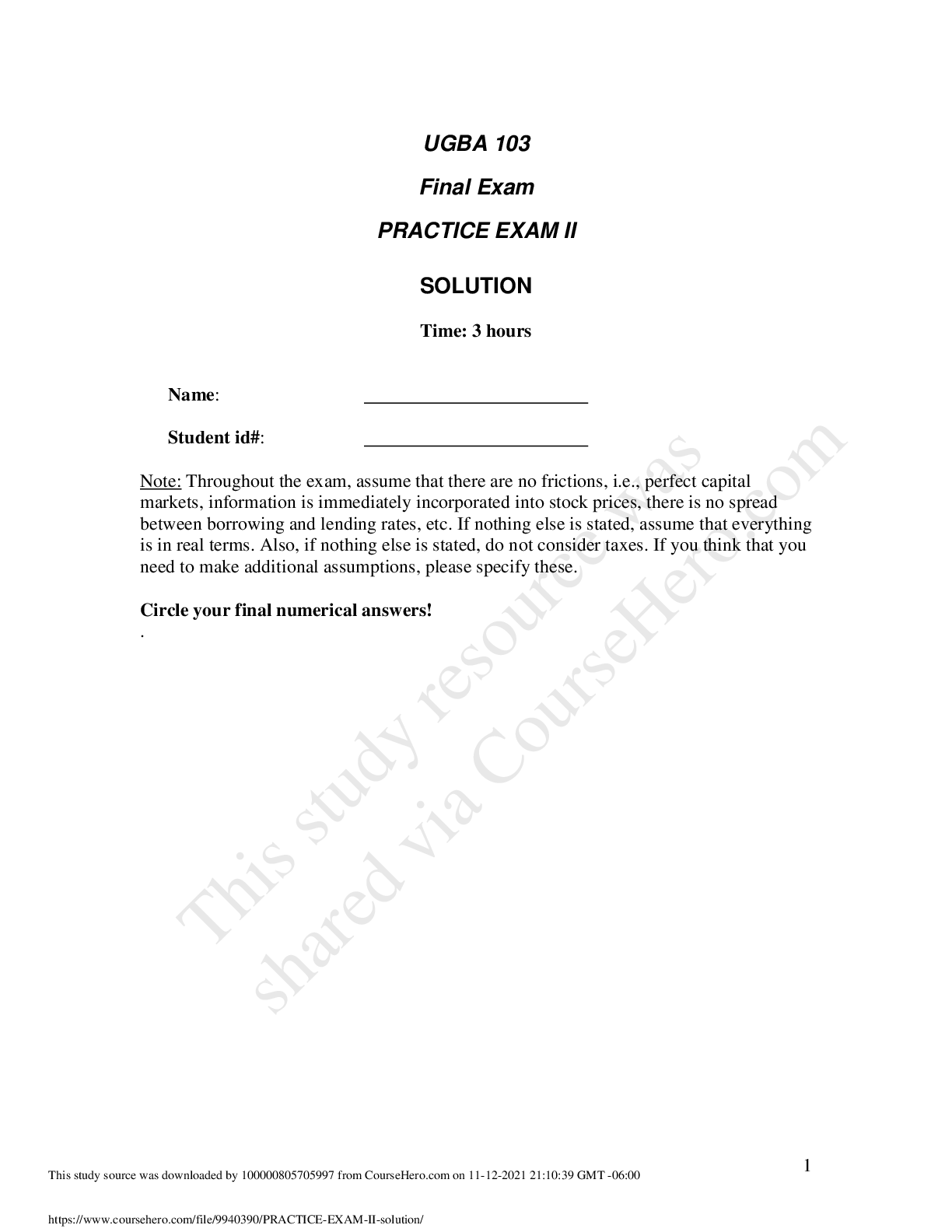Health Care > QUESTIONS & ANSWERS > NSG 5003 WEEK 5 QUIZ Graded A+ South University (All)
NSG 5003 WEEK 5 QUIZ Graded A+ South University
Document Content and Description Below
South University, Savannah - NSG 5003WEEK 5 QUIZ-90 Which pulmonary defense mechanism propels a mucous blanket that entraps particles moving toward the oropharynx? Question 1 options: a) ... Nasal turbinates b) Alveolar macrophages c) Cilia d) Irritant receptors on the nares Save Question 2 (0.5 points) Stretch receptors and peripheral chemoreceptors send afferent impulses regarding ventilation to which location in the brain? Question 2 options: a) Pneumotaxic center in the pons b) Apneustic center in the pons c) Dorsal respiratory group (DRG) in the medulla oblongata d) Ventral respiratory group (VRG) in the medulla oblongata Save Question 3 (0.5 points) If a patient develops acidosis, the nurse would expect the oxyhemoglobin dissociation curve to react in which manner? Question 3 options: Shift to the right, causing more oxygen (O2) to be released to the cells Shift to the left, allowing less oxygen (O2) to be released to the cells Show no change, allowing the oxygen (O2) concentration to remain stable Show dramatic fluctuation, allowing the oxygen (O2) concentration to increase Save Question 4 (0.5 points) How is most carbon dioxide (CO2) in the blood transported? Question 4 options: Attached to oxygen (O2) In the form of bicarbonate Combined with albumin Dissolved in the plasma Save Question 5 (0.5 points) The sternocleidomastoid and scalene muscles are referred to as which group of muscles? Question 5 options: Diaphragmatic muscles Muscles of expiration Intercostal muscles Muscles of inspiration Save Question 6 (0.5 points) What event is characteristic of the function in Zone I of the lung? Question 6 options: Blood flow through the pulmonary capillary bed increases in regular increments. Alveolar pressure is greater than venous pressure but not greater than arterial pressure. The capillary bed collapses, and normal blood flow ceases. Blood flows through Zone I, but it is impeded to a certain extent by alveolar pressure. Save Question 7 (0.5 points) Hypoventilation that results in the retention of carbon dioxide (CO2) will stimulate which receptors in an attempt to maintain a normal homeostatic state? Question 7 options: Irritant receptors Central chemoreceptors Peripheral chemoreceptors Stretch receptors Save Question 8 (0.5 points) Which pleural abnormality involves a site of pleural rupture that acts as a one-way valve, permitting air to enter on inspiration but preventing its escape by closing during expiration? Question 8 options: Spontaneous pneumothorax Tension pneumothorax Open pneumothorax Secondary pneumothorax Save Question 9 (0.5 points) In ARDS, alveoli and respiratory bronchioles fill with fluid as a result of which mechanism? Question 9 options: Compression on the pores of Kohn, thus preventing collateral ventilation Increased capillary permeability, which causes alveoli and respiratory bronchioles to fill with fluid Inactivation of the surfactant and impairment of type II alveolar cells Increased capillary hydrostatic pressure that forces fluid into the alveoli and respiratory bronchioles Save Question 10 (0.5 points) Which immunoglobulin may contribute to the pathophysiologic characteristics of asthma? Question 10 options: Immunoglobulin A (IgA) Immunoglobulin E (IgE) Immunoglobulin G (IgG) Immunoglobulin M (IgM) Save Question 11 (0.5 points) Which statement about the late asthmatic response is true? Question 11 options: Norepinephrine causes bronchial smooth muscle contraction and mucus secretion. The release of toxic neuropeptides contributes to increased bronchial hyperresponsiveness. The release of epinephrine causes bronchial smooth muscle contraction and increases capillary permeability. Immunoglobulin G (IgG) initiates the complement cascade and causes smooth muscle contraction and increased capillary permeability. Save Question 12 (0.5 points) [Show More]
Last updated: 3 months ago
Preview 3 out of 9 pages

Loading document previews ...
Buy this document to get the full access instantly
Instant Download Access after purchase
Buy NowInstant download
We Accept:

Reviews( 0 )
$14.00
Can't find what you want? Try our AI powered Search
Document information
Connected school, study & course
About the document
Uploaded On
Nov 17, 2020
Number of pages
9
Written in
Additional information
This document has been written for:
Uploaded
Nov 17, 2020
Downloads
0
Views
116


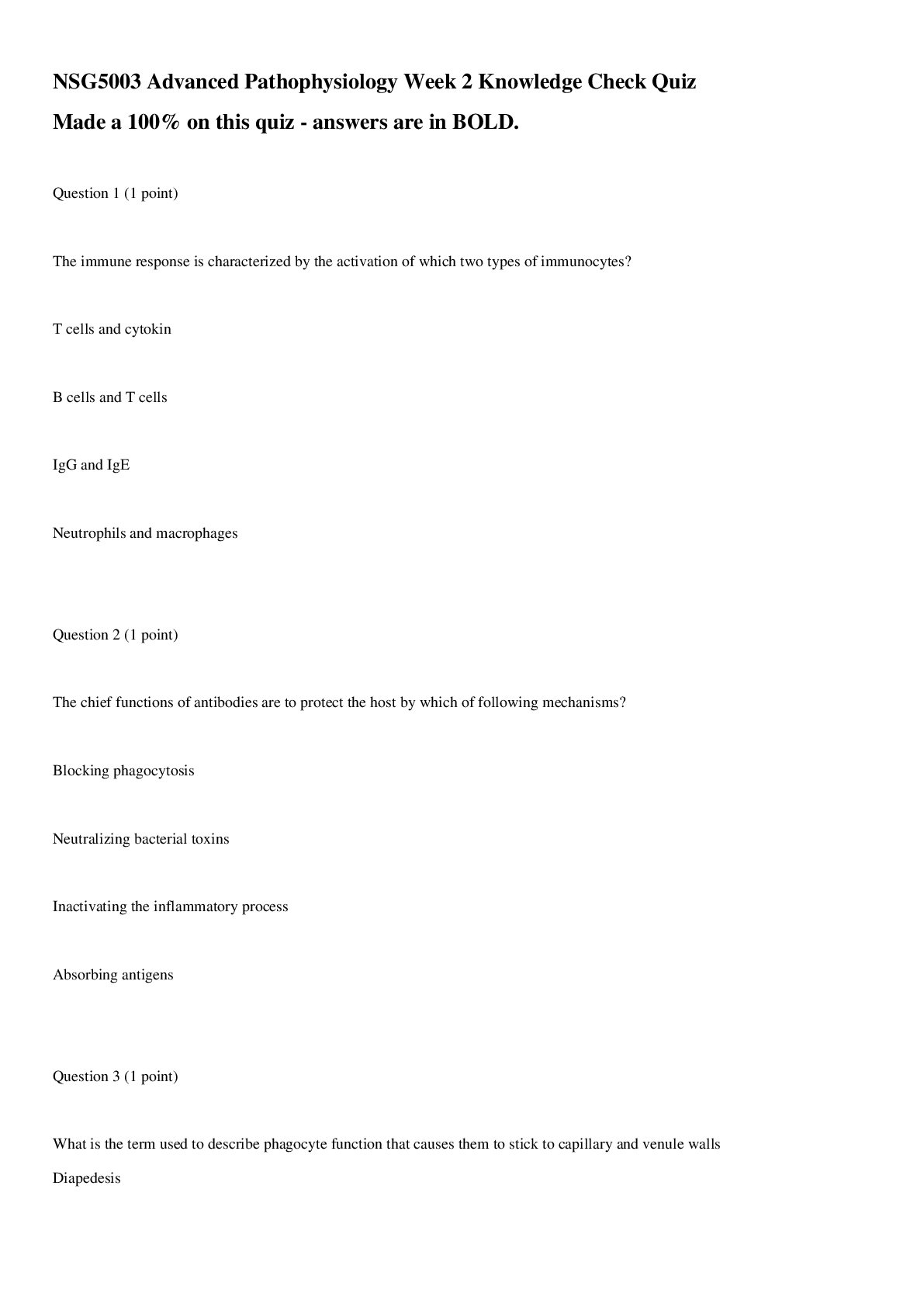
.png)
